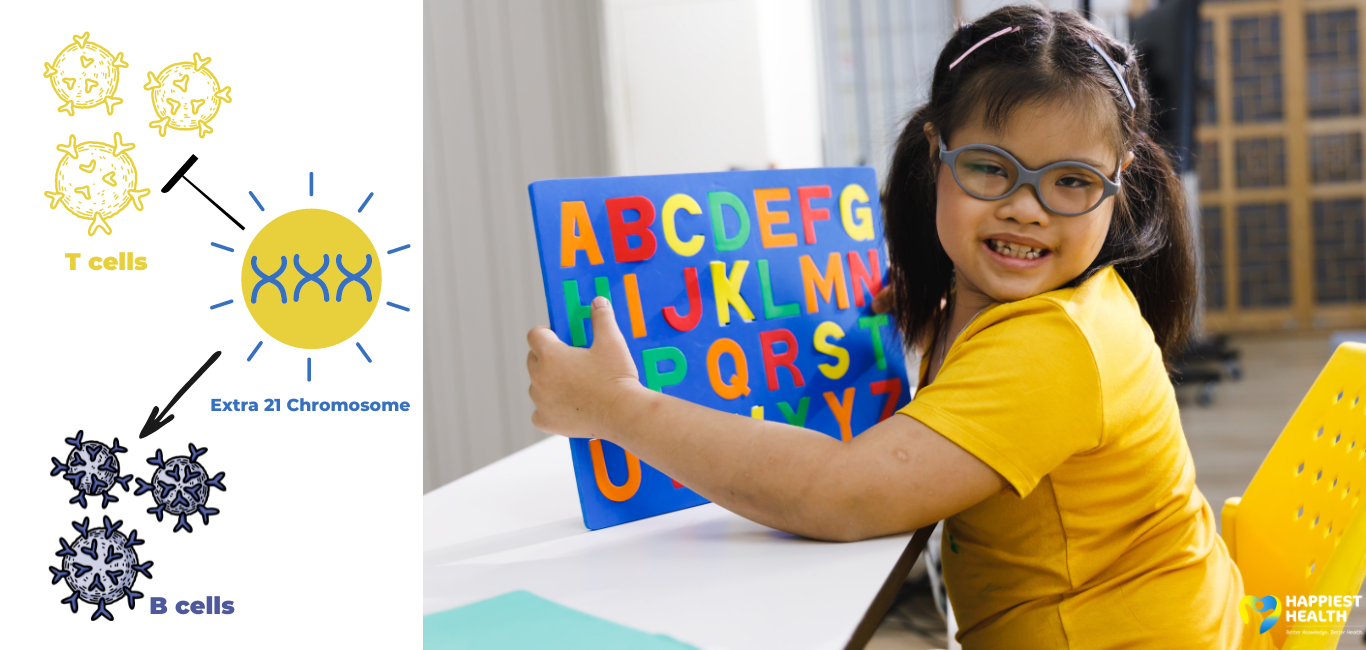
A team of researchers at the Icahn School of Medicine, Mount Sinai, USA, have uncovered why people with Down syndrome are at a higher risk of developing autoimmune diseases than the general population.
Every person has an inbuilt mechanism that tackles bacteria or viruses, typically through the activation of immune cells called T-cells. However, in people with Down Syndrome, the researchers observed that these T cells show abnormal activity, which increases the risk of autoimmune diseases. They found that the signalling molecules IL-6 and JAK triggered this abnormality.
Dr Sagar Bhattad, consultant, Paediatric Immunology & Rheumatology, Aster RV Bengaluru, says, “Our body produces protein molecules called antibodies that protect us from infections by fighting against germs, bacteria, and viruses that can harm us.”
However, when the immune cells turn against their own body cells, it results in autoimmune conditions like hypothyroidism, diabetes, and arthritis, he adds.
Genetic puzzle with extra 21
Down syndrome is a genetic condition which is also known as trisomy. Here, the individuals have an additional copy of chromosome 21, which alters their body and brain development, resulting in physical and mental challenges.
Read more: The tale of an extra chromosome: Down syndrome
According to Dr Dusan Bogunovic, professor at Icahn School of Medicine, Centre for Inborn Errors of Immunity, people with Down syndrome are more susceptible to infectious diseases. This is because their body’s immune cells start targeting various organs, including the thyroid, pancreas, adrenal gland, and stomach. As a result, people with Down syndrome are more likely to develop autoimmune conditions like thyroiditis, coeliac disease, alopecia areata, and type 1 diabetes.
Dr Bhattad lists three factors that contribute to the higher risks:
- congenital heart defects, which will predispose them to recurrent chest infections
- low muscle tone (hypotonia), because of which children may take longer time to recover
- anomalies in the immune system
Why does this happen?
In the case of Down syndrome, researchers observed that the abnormal activation of T cells led to an increase in the number of cytokines, CD4 T cells and CD11c+ B cells.
Dr Dusan says, “When we sampled the blood of individuals with Down syndrome, even nine months apart after an infection, we noted that they had high levels of inflammation.”
The researchers used advanced testing methods and assays to observe the self-reactive antibodies for their study.
Prospects
The findings of the study open new paradigms to develop new therapies to treat Down syndrome. One option Dr Dusan proposes is to block the activation of T cells and activate B cells, which could help control hyperinflammation in individuals with Down syndrome. However, the inherent side effects of these methods still need to be addressed.
Further studies are required to join the patchy clues, Dr Dusan says. “We have to find out the reason for the erratic immune behaviour and how T and B cells trigger autoimmunity,” he says. Moreover, clinical trials to study the effect of the signalling molecules JAK and IL-6 inhibitors in humans is the next step, he adds.

















